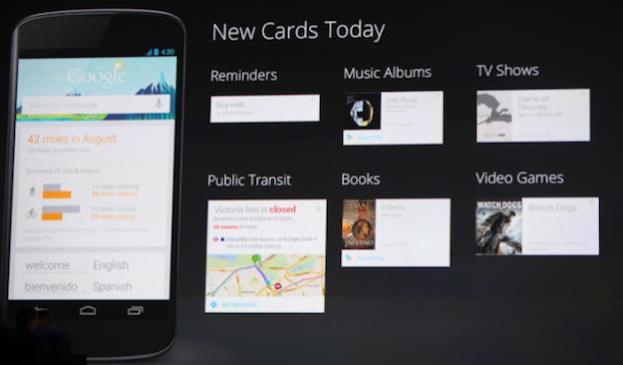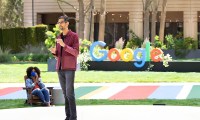
Google has updated its Google Now app and demonstrated the alterations on stage during the Google I/O keynote presentation. Introduced with the reminder that Google Now gets better the more you use it, it was appropriate that the first new feature to be added is reminders. These can be set in the app, and show up as a card and notification at the relevant time.
As handy as reminders will be, the new public transport cards are even more so. Not only will it provide timings, but up-to-date, real-time information too, including alerts on closures or cancellations. Google has also added recommendation cards for music, TV shows, books, and video games, which are based on your search history, so results should be vaguely relevant. In a Siri-challenging move, Google has added voice reminders for Google Now. Just like Apple’s personal assistant, you speak your request – make a call, buy milk, that sort of thing – to the app and it’ll add a card for you.
However, the voice recognition doesn’t stop at reminders. Google Now is evolving into a more versatile assistant thanks to a new conversational search system added to Chrome. You wake up the search by saying, “OK Google,” and through location services, Google’s Knowledge Graph, and Google Search, you can ask it to give you directions, the distance to a nearby place, get details on upcoming trips, and even search for photos stored in your Google account. This is where Google’s advice of using Google Now more to make it more relevant comes to the forefront, as all these features will be monitored, resulting in a better (or more frightening, depending on your viewpoint) experience. To get the photo- and email-relevant results in Google Now, such as trips or appointments, you’ll need to be signed up for the trial version of Gmail’s field search system.
All the new Google Now features and cards are available in the Android app right now, so check for an update if you already have it installed. Google Now has only just been added to the iOS Google Search app, so it’s still in its early days, and, unsurprisingly, no details on when the features would be added to it was shared.



